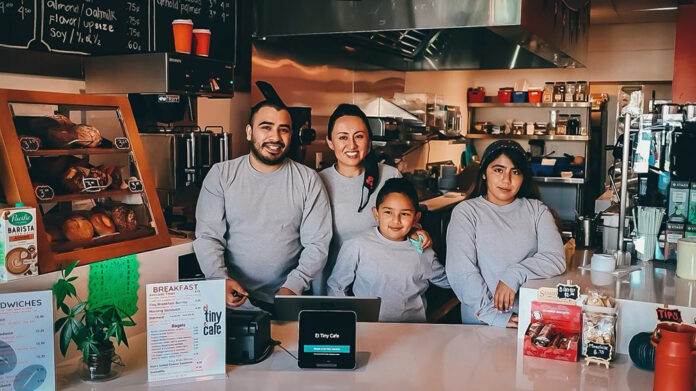by Suzanne Potter
California News Service
July 18, 2023 – A new system of bundling and reselling small-business loans is funneling millions to companies owned by women, people of color, immigrants and others who are often excluded from the financial system. Community development financial institutions – known as CDFIs – focus on small loans of $5 to $250,000 sometimes even if the business has not started turning a profit.
Brett Simmons, managing director at Scale Link, said the nonprofit buys loans from CDFIs and bundles them for larger banks looking to meet requirements under the Community Reinvestment Act.
“Any CDFI, after they originate a loan, they have to wait for repayment before they have new capital to lend. And we help them get that capital back faster by purchasing loans from them. So, that frees up new cash to lend. And then we also help them generate new revenue by packaging some of those loans together and selling them to banks.”
This secondary market is expanding. Since Scale Link launched in 2020, it has purchased 731 loans made by CDFIs to California small businesses, worth more than $14-million.
Sara Razavi, CEO of Working Solutions CDFI, said her group focuses on helping businesses that have a hard time getting financing from traditional banks that prefer to deal with larger, more established companies.
“They’re just low-income individuals who have limited credit profiles and have been designated by banks as being less likely to pay back, but we have an over 95% repayment rate,” she insisted. “So, the quality of our portfolio is extremely strong.”
Nationally, Scale Link has purchased more than 2,800 loans worth $43-million and has donated $4.4-million in profits back to the CDFIs.
Lawsuit Progresses Against CA’s Medical Aid-in-Dying Law
Film about CA Patient Receives Emmy Nomination
California’s medical aid-in-dying law is still under fire this week – as Friday is the deadline for the state to respond to a federal lawsuit seeking to invalidate it.
The California End of Life Option Act allows terminally ill patients with less than six months to live to get a prescription they could use to end their suffering.
The plaintiffs include the disability rights group “Not Dead Yet,” which opposes medical aid in dying.
Charmaine Manansala, who has a disability herself, supports the law and works as the chief advocacy officer with the nonprofit Compassion & Choices.
“In the twenty plus years medical aid-in-dying laws have been around, there’s been no evidence of coercion or abuse,” said Manansala. “And the law specifically states just because you have a disability doesn’t mean you qualify for medical aid in dying.”
The California Department of Health reports more than 2,800 terminally ill Californians received prescriptions from 2016 to 2020, and about 1,800 opted to use the medication.
A new film on the subject has just been nominated for an Emmy. “Last Flight Home“ tells the story of Eli Timoner, a terminally-ill California man who used the law to die peacefully.
Timoner’s daughter Ondi is a documentary filmmaker who produced, directed, wrote and edited the movie. She said the End of Life Option Act gave her father a sense of peace and a feeling of agency.
“It’s a basic human right, that we all deserve to have bodily autonomy at the end of life,” said Timoner. “I think it’s very important that people choose the day if they want to, and can gather their family around them, like we did. It allows everyone in the family healing and closure.”
The film can be viewed on Paramount Plus and Amazon.



